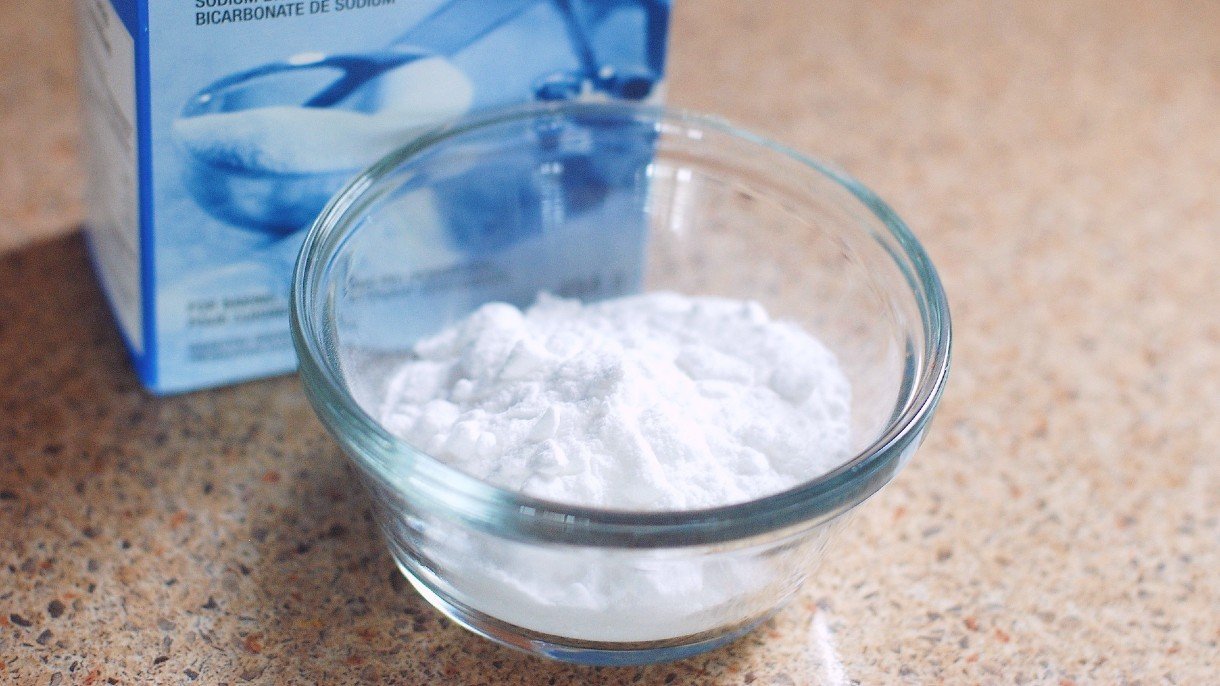Is Baking Soda Environmentally Friendly?

Civilizations have been using baking soda for cleaning since Ancient Egypt when sodium carbonate and sodium bicarbonate (baking soda) were mixed with oil and used to cleanse teeth and used for wounds and cuts. It was even used as a bleach for clothing!
Since 1970, baking soda has been touted as an eco-friendly alternative to cleaning chemicals.
Does baking soda harm the environment?
Baking soda is created from mining the minerals nahcolite and trona, which are refined into sodium carbonate or soda ash. Luckily we have billions of tons of these minerals to mine from, so while they’re not renewable sources, it’s expected we have enough to last at least 2000 years.
There is a way to synthetically create baking soda using limestone, salt, and ammonia, but this uses more energy and creates toxic wastewater. So synthetic baking soda comes with a big carbon footprint.
Mining baking soda has its own problems, using lots of energy and emitting nitrogen oxides, methane, and more. This isn’t something we can escape, though improvements could be made to reduce the carbon footprint of the mining industry.
While baking soda has an environmental impact, its negative impact is far less than alternatives like bleach.
Unlike synthetic cleaning agents, baking soda is not known to do major harm to wildlife or aquatic life, though it is listed as “irritating” at certain levels to rabbits and has some levels of aquatic toxicity.
The safety data sheet for sodium bicarbonate advises keeping it separated from acids and avoiding storing it at a temperature above 50°C (122°F).
The Environmental Protection Agency has assessed the use of sodium bicarbonate as a biopesticide and states: “sodium bicarbonate [is] not associated with adverse effects to the environment”.
Baking soda can be safely used as a fungicide in the garden, though you should try and look for sodium bicarbonate products specifically produced to be used in the garden and approved by the EPA.
Ultimately, baking soda is safe for the environment, but you should avoid using large amounts of it around or with animals.
The amounts needed to harm animals and aquatic life are much greater than you need to clean with, so just keep your usage of baking soda as much as you need for the job. Sometimes you can even use less than advised and still get great results!
How baking soda cleans
Sodium bicarbonate is alkaline, so when odors (which are typically acidic) react with baking soda in the air, the baking soda neutralizes the odor. It’s why you might hear of people putting boxes of baking soda in the fridge to absorb smells.
Chemical reactions between alkaline and acidic substances is also why baking soda and vinegar are used together. When poured down the drain together, the two substances react and unclog it. Together they create water and carbon dioxide, with bubbles of carbon dioxide loosening the dirt and any blockages.
Unlike soap, baking soda doesn’t contain fat molecules, making it more abrasive. This gives it the ability to remove stains and dislodge dirt from surfaces.
One of the many uses of baking soda is toothpaste or cleaning teeth. Studies of its antibacterial activity have shown that baking soda in toothpaste can lead to decreased levels of bacteria that cause tooth decay.
It’s also effective in removing plaque biofilm while being inexpensive, though there are a few studies warning against ingesting large quantities of baking soda as it can lead to poisoning.
Is baking soda safe to go down the drain?
One of the most well-known uses for baking soda is cleaning drains, but is it really safe to go down the drain?
We know now that it is not known to be harmful to aquatic life, and the amount of baking soda needed to unclog or clean a drain definitely won’t do any harm.
Some people have tried using too much baking soda after their first try didn’t get the results they expected. You should never use a whole box of baking soda! It might just add to your draining problem by stacking up the clog instead of getting rid of it.
Baking soda and vinegar are great for maintaining drains but when a lot of gunk has accumulated, you’d be better off using a drain snake or contacting a plumber.
Then you can use a bit of baking soda and vinegar to do regular maintenance. By regular, I recommend monthly – The Plumber Guy says this is sufficient to avoid any major problems with your plumbing, and it isn’t too difficult to set aside some time each month.
You can also use baking soda to safely clean your toilet.
For toilets, pour 1 cup of vinegar in the toilet bowl and swish it around with a brush, letting it sit for one minute before adding 1 cup of baking soda and another 1-2 cups of vinegar. It should start to fizz. Leave it for 10 minutes before using the toilet brush around the bowl and then leave it for a further 30 minutes. If there’s still some staining, scrub it with the brush before flushing the toilet. All done!
Baking soda can be used to clean your washing machine or even to wash your clothes when handwashing.
Half a cup of baking soda will suffice, letting it dissolve in the water before you lightly scrub the clothes. After soaking for 15-30 minutes you should find most dirt has been dislodged. If you think they could still do with more of a clean, a little bit of eco-friendly detergent can help brighten the fabric.
